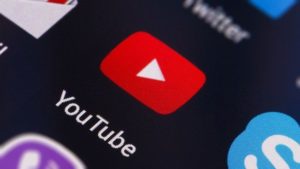
After barring Logan Paul earlier today from serving ads on his video channel, YouTube has now announced a more formal and wider set of sanctions it’s prepared to level on any creator that starts to post videos that are harmful to viewers, others in the YouTube community, or advertisers.
As it has done with Paul (on two occasions now), the site said it will remove monetization options on the videos, specifically access to advertising programs. But on top of that, it’s added in a twist that will be particularly impactful given that a lot of a video’s popularity rests on it being discoverable:
“We may remove a channel’s eligibility to be recommended on YouTube, such as appearing on our home page, trending tab or watch next,” Ariel Bardin, Vice President of Product Management at YouTube, writes in a blog post.
The full list of steps, as outlined by YouTube: 1. Premium Monetization Programs, Promotion and Content Development Partnerships. We may remove a channel from Google Preferred and also suspend, cancel or remove a creator’s YouTube Original. 2. Monetization and Creator Support Privileges. We may suspend a channel’s ability to serve ads, ability to earn revenue and potentially remove a channel from the YouTube Partner Program, including creator support and access to our YouTube Spaces. 3. Video Recommendations. We may remove a channel’s eligibility to be recommended on YouTube, such as appearing on our home page, trending tab or watch next.
The changes are significant not just because they could really hit creators where it hurts, but because they also point to a real shift for the platform. YouTube has long been known as a home for edgy videos filled with pranks and potentially offensive content, made in the name of comedy or freedom of expression.
Now, the site is turning over a new leaf, using a large team of human curators and AI to track the content of what’s being posted, and in cases where videos fall afoul of YouTube’s advertising guidelines, or pose a threat to its wider community, they have a much bigger chance of falling afoul of YouTube’s rules and getting dinged.
“When one creator does something particularly blatant—like conducts a heinous prank where people are traumatized, promotes violence or hate toward a group, demonstrates cruelty, or sensationalizes the pain of others in an attempt to gain views or subscribers—it can cause lasting damage to the community, including viewers, creators and the outside world,” writes Bardin. “That damage can have real-world consequences not only to users, but also to other creators, leading to missed creative opportunities, lost revenue and serious harm to your livelihoods. That’s why it’s critical to ensure that the actions of a few don’t impact the 99.9 percent of you who use your channels to connect with your fans or build thriving businesses.”
The moves come at a time when the site is making a much more concerted effort to raise the overall quality of what is posted and shared and viewed by millions of people every day, after repeated accusations that it has facilitated a range of bad actors, from people peddling propaganda to influence elections, to those who are posting harmful content aimed at children, to simply allowing cruel, tasteless and unusual videos to get posted in the name of comedy.
The issue seemed to reach a head with Paul, who posted a video in Japan in January that featured a suicide victim, and has since followed up with more questionable content presented as innocuous fun.
As I pointed out earlier today, even though he makes hundreds of thousands of dollars from ads (the exact amount is unknown and has only been estimated by different analytics companies) removing ads was only a partial sanction, since Paul monetizes in other ways, including merchandising. So it’s interesting to see YouTube adding more details and ways of sanctioning creators, that will hit at their very virality.
As in the case of Paul, YouTube makes a point of the fact that the majority of people who post content on its platform will not be impacted by today’s announcement because their content is not on the wrong side of acceptable. These sorts of sanctions, it said, will be applied as a last resort and will often not permanent but will last until the creator removes or alters content. It will be worth watching how and if this impacts video content overall on the platform.


